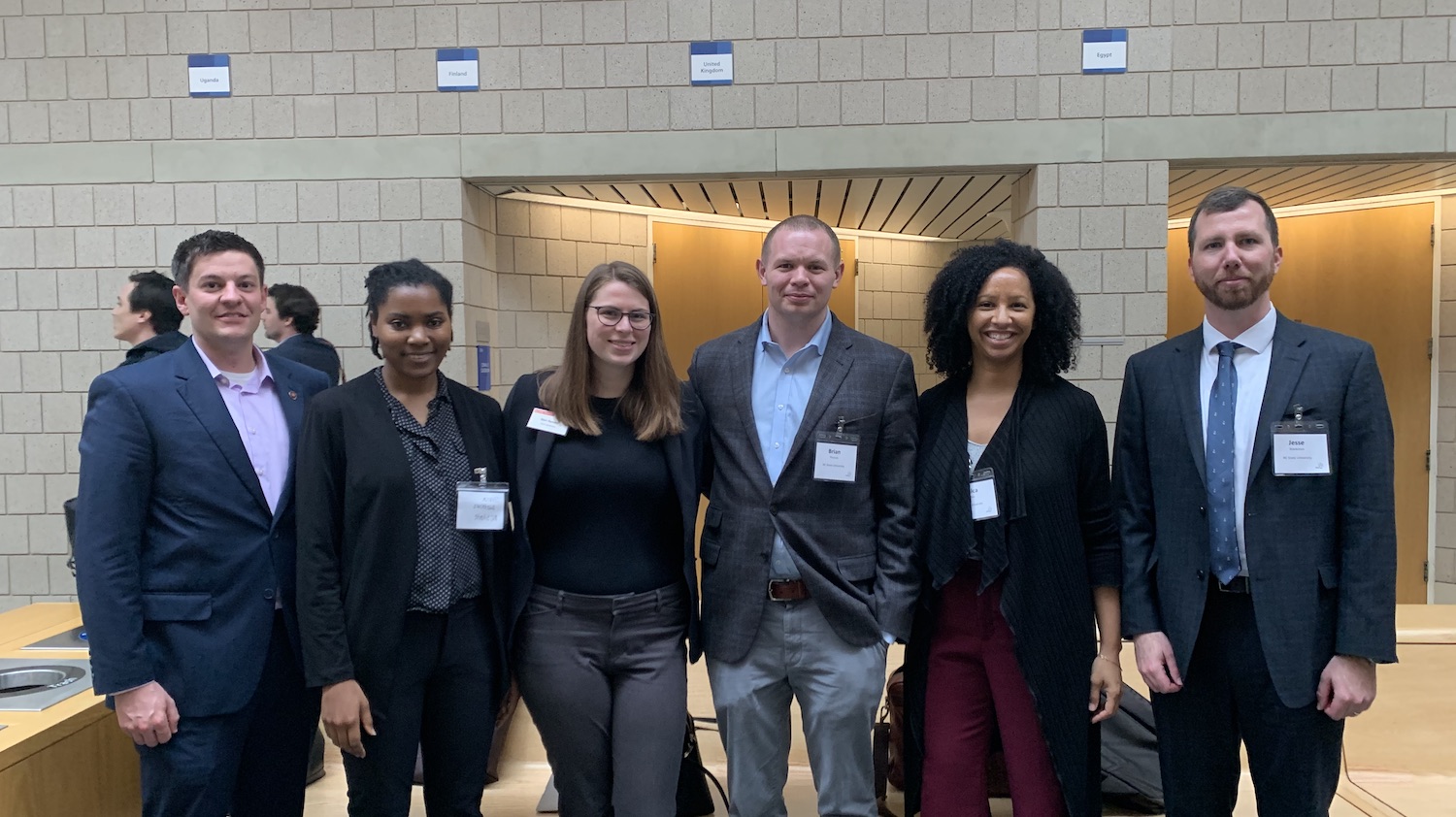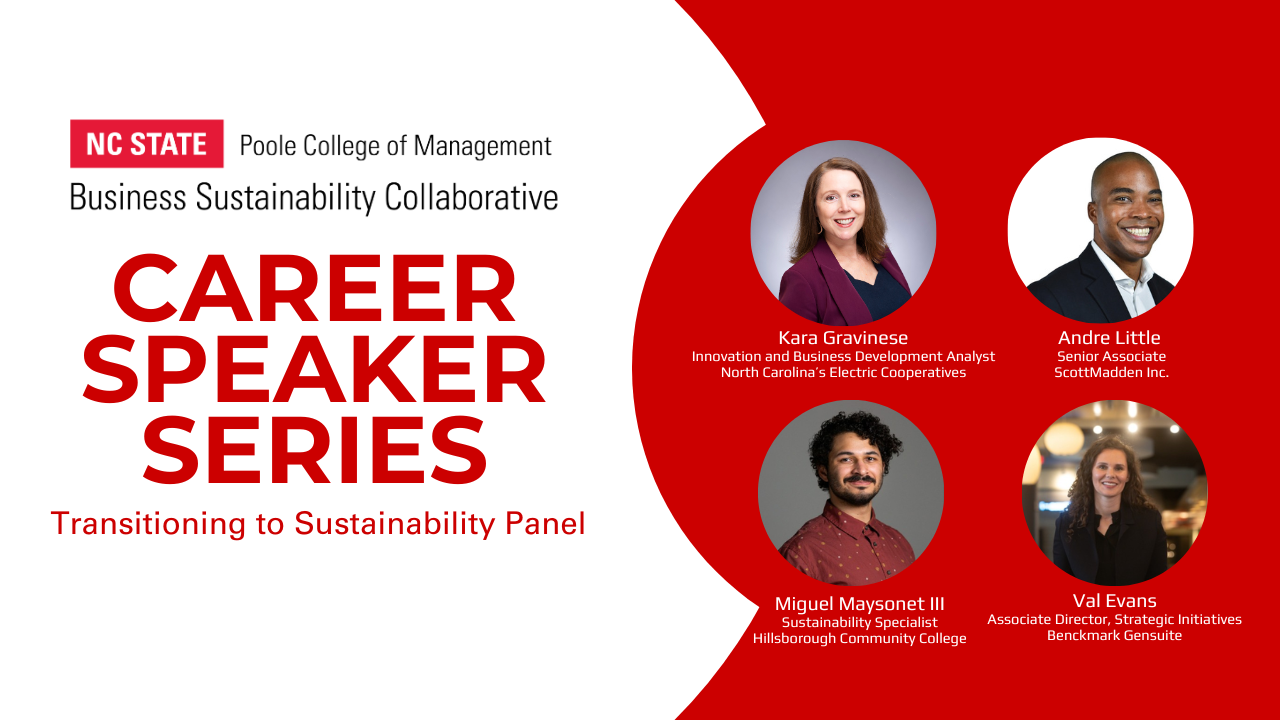Sustainable Business and Social Impact Conference: Patience as a Key to Impact Investing

by Olivia Watkins, BSC Associate & Jenkins MBA Candidate ’21
In February 12th, I had the opportunity to attend the annual Sustainable Business and Social Impact Conference (SBSI) hosted by the Net Impact Chapter at Duke University’s Fuqua School of Business. The SBSI conference brings together hundreds of students and professionals to discuss ideas that are creating a social impact on the world. This year, the panels discussed impact investing, sustainable supply chains, tech for good, and systems change.
As a student at North Carolina State University and an Associate in the Business Sustainability Collaborative, it was a great opportunity to connect with other business students in the area and meet professionals working in the social impact space.
One of the panels that I enjoyed was: What do investors expect in ESG Investing? For those who are not familiar, ESG is a way for investors to screen companies that are impacting environmental, social, and governance in the world. Representatives from Moody’s, Cambridge Associates, Arabella Advisors, KKR, and SEI Investments Company sat on the panel to discuss the evolution of impact investing.
The term impact investing was coined in 2007 as investors increasingly desired investment options they hope would simultaneously benefit profits and social good. Since then the field has changed and continues to as standards of what constitutes a socially good and profitable investment are consistently up for debate. Because there is no universal ESG standard, yet, companies have different ways as to how they screen. The representative from one of the organizations said this is approximately how they screen:
- ESG Screen: Identify companies that do not meet the ESG standards (ie. companies that do business in fossil fuels) and take them out of the investment portfolio.
- ESG Target: Identify companies that have ESG aligned missions and add them to the investment portfolio
- ESG Intentional: Identify companies that exist exclusively for the purpose of ESG and add them to the investment portfolio
By including multiple levels of screening during the due diligence process, this assures investors that they are making informed investment decisions that have a competitive advantage and reduce risk. It is now considered competitively advantageous to invest for the greater good of our planet as businesses that do not benefit ESG categories begin to have a detrimental effect on economies across the world.
The biggest takeaway from SBSI and the panel was on how important it is to be patient as you switch from an exploitative business paradigm to a sustainable business paradigm. Switching to impact investing requires patience. Because impact investing prioritizes companies that add value to communities for positive long-term effects, returns look different than the traditional market returns. Nevertheless, this patient capital is needed across the world as businesses and communities continue to do the work of repairing the environment, corrupt governmental structures, and improving social conditions. Next time you sit down to decide how to invest your money, take a moment to consider options that could put your money to use as a force for good.


